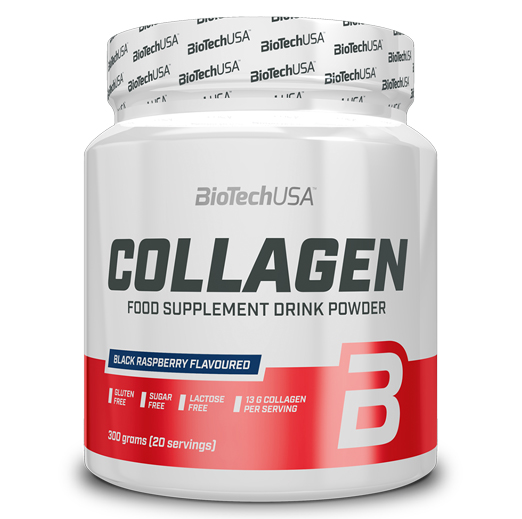In recent years, collagen has burst onto the wellness scene like a beauty elixir straight from ancient lore. You’ll find it in smoothies, protein bars, lattes, and skincare products. Its promises are as seductive as they are sweeping: glowing skin, luscious hair, strong nails, supple joints, and a youthful body that defies time. Instagram influencers rave about it. Beauty brands build entire empires around it. Health food stores display it like a sacred relic.
But amidst the marketing glamor and glowing testimonials, there’s a question that refuses to be glossed over: does collagen supplementation actually work? Is it a scientific breakthrough—or just another chapter in the wellness industry’s long history of selling dreams?
To answer that, we need to dive deep into biology, nutrition science, dermatology, and human metabolism. We’ll examine what collagen really is, how it works in the body, what happens when you ingest it, and whether taking collagen supplements is really worth your time and money.
What Is Collagen, Really?
To understand collagen supplements, we first need to understand collagen itself. Collagen is the most abundant protein in the human body. It serves as the structural scaffolding that holds everything together—your skin, bones, tendons, ligaments, cartilage, and even the walls of your blood vessels. Without collagen, your body would literally fall apart.
There are at least 28 types of collagen, but around 90% of the collagen in your body is made up of Type I, II, and III. Type I is the toughest and most common, found in skin, tendons, internal organs, and the organic part of bones. Type II is found mostly in cartilage, and Type III is prevalent in skin, lungs, and blood vessels.
Your body naturally produces collagen, stitching together amino acids from the food you eat to build this structural protein. But as you age, that production begins to slow down. By the time you hit your mid-20s, your collagen production declines by about 1% each year. By your 40s and 50s, the effects are more visible—wrinkles, sagging skin, joint stiffness, brittle nails, thinning hair.
That’s where the wellness industry swoops in, promising to restore what nature has begun to take away.
The Biology of Eating Collagen
Here’s the first layer of complexity: when you ingest collagen—whether it’s in a pill, powder, or gummy—your body doesn’t just shuttle it directly to your skin or joints.
Collagen is a protein, and like any other protein you eat (think chicken breast or tofu), it’s broken down by your digestive system into amino acids. These amino acids are absorbed into your bloodstream and then reassembled by your body into new proteins—collagen or otherwise—wherever they’re needed most.
So, does eating collagen magically restore your skin’s elasticity or soothe your aching knees? Not exactly. But it’s not entirely a myth either. The key lies in how your body uses the specific amino acids that collagen is rich in—glycine, proline, and hydroxyproline.
These amino acids are indeed essential building blocks of collagen. By flooding your system with more of them, you might be providing your body with the raw materials it needs to rebuild collagen in tissues that need it. Think of it like sending a shipment of bricks to a construction site—it doesn’t guarantee a building will go up, but it makes it possible.
Hydrolyzed Collagen: The Industry’s Favorite Buzzword
You’ve probably seen the term “hydrolyzed collagen” or “collagen peptides” plastered across supplement labels. It sounds technical—and that’s because it is. Hydrolyzed collagen is collagen that’s been broken down into smaller chains of amino acids called peptides through a process called hydrolysis. This makes it easier for your body to digest and absorb.
This is crucial, because native collagen molecules are too large to be absorbed efficiently. Hydrolyzed collagen, on the other hand, slips through the digestive system more easily, allowing for better bioavailability. But that still doesn’t mean it zips straight to your wrinkles or your joints.
Instead, it enters your bloodstream as peptides and individual amino acids. Your body can then use these to synthesize its own collagen—assuming all the other necessary ingredients, like vitamin C, zinc, and copper, are also present.
This leads us to a deeper and more pressing question: what does the science actually say?
Scientific Scrutiny: Do Collagen Supplements Work?
Here’s where things get both exciting and murky. There have been a growing number of studies examining collagen supplementation in recent years, and many of them show promising results—particularly for skin health, joint pain, and bone density.
Let’s start with skin. Multiple double-blind, placebo-controlled studies have found that taking collagen peptides can improve skin elasticity, hydration, and even reduce wrinkles over time. One often-cited study published in Skin Pharmacology and Physiology in 2014 found that women who took 2.5 grams of collagen peptides daily for eight weeks had improved skin elasticity compared to those who took a placebo. Other studies have echoed these results, showing increased skin hydration and dermal collagen density.
In terms of joints and bones, the data is also encouraging. A 2008 study published in Current Medical Research and Opinion found that athletes who took 10 grams of collagen hydrolysate daily for 24 weeks experienced significant improvements in joint pain. Similarly, studies have found that collagen supplements may help improve bone mineral density in postmenopausal women.
So yes, the science suggests that collagen supplements can have a real, measurable impact—at least in some people, and especially over the long term. But the effects are typically modest, and the studies vary widely in quality, dosage, and methodology.
Beyond the Skin: Collagen for Hair, Nails, and Gut
Beyond skin and joints, collagen is often touted as a miracle for hair growth, nail strength, and even digestive health. But here, the evidence starts to get thinner.
Anecdotal reports abound—many people swear their nails grew faster and their hair thickened after starting collagen. However, clinical trials specifically targeting hair and nails are scarce. The few studies that do exist suggest there may be some benefit, but the results are far from conclusive.
As for gut health, collagen contains amino acids like glycine and glutamine that are important for maintaining the integrity of the intestinal lining. Some alternative medicine practitioners recommend collagen supplements for conditions like leaky gut syndrome. However, mainstream medical research on this front is still in its infancy, and much of the support remains theoretical rather than evidence-based.
Collagen vs. Whole Food Protein: Is There a Difference?
Here’s an interesting twist: you could theoretically get the same amino acids found in collagen supplements from eating a diet rich in high-quality protein—chicken, fish, eggs, legumes, tofu, and more. So why is collagen in particular getting all the attention?
Part of the answer lies in its unique amino acid profile. While many proteins contain glycine and proline, collagen is particularly dense in these and also contains hydroxyproline—an amino acid found almost exclusively in collagen. This may give collagen an edge when it comes to stimulating collagen synthesis in the body.
Another reason is ease. It’s far simpler to toss a scoop of collagen powder into your morning coffee than it is to calculate whether your dinner contains enough hydroxyproline. It’s convenience wrapped in a halo of wellness.
Plant-Based Collagen: Myth or Possibility?
For vegetarians and vegans, collagen supplements pose an ethical dilemma: collagen is animal-derived, typically sourced from cow hide, fish skin, or chicken cartilage. So, what about plant-based collagen?
Here’s the deal: plants don’t contain collagen. However, some supplements are marketed as “plant-based collagen builders.” These don’t contain collagen itself, but rather the nutrients your body needs to make collagen—things like vitamin C, zinc, amino acids from plant proteins, and antioxidants that protect existing collagen from breakdown.
While these products won’t supply you with collagen peptides directly, they may help support your body’s natural collagen production. For plant-based purists, they may be the next best thing—though again, the clinical evidence is limited.
The Role of Lifestyle: You Can’t Supplement Your Way Out of Damage
If you’re guzzling collagen powder every morning but still smoking, skimping on sleep, living off ultra-processed food, and frying in the sun without sunscreen, you’re fighting a losing battle. Collagen breakdown is accelerated by oxidative stress, inflammation, UV radiation, sugar, and pollution.
In other words, you can’t simply supplement your way to glowing skin or bulletproof joints if your lifestyle is actively sabotaging your body’s ability to maintain collagen. The most effective strategy? Combine collagen supplementation with a diet rich in antioxidants, regular physical activity, adequate sleep, stress management, and sun protection.
Collagen and Bioindividuality: Why It Works for Some but Not Others
Like so many supplements, collagen’s effects can vary dramatically from person to person. Your age, genetics, diet, lifestyle, gut health, and even hormonal status can all influence how well your body utilizes collagen supplements.
Some people report visible improvements in skin texture or reduced joint pain within weeks. Others see no change even after months. This isn’t a failure of collagen—it’s a reflection of human bioindividuality. Just as some people feel an energy boost from B12 while others don’t, collagen’s effectiveness isn’t universally guaranteed.
This is why personal experimentation, ideally guided by a healthcare practitioner, is often the best approach. Track changes in skin hydration, joint comfort, or nail strength over a few months. Keep an eye out for subtle shifts rather than dramatic transformations.
The Bottom Line: Hype vs. Hope
So, is collagen a miracle? No. But is it snake oil? Also no.
The truth about collagen supplements lies somewhere in the nuanced middle. They’re not magic, but they’re not useless either. For many people—especially those experiencing age-related decline in skin or joint health—collagen supplements may provide a modest, noticeable benefit over time.
But they work best as part of a broader commitment to holistic health. Think of collagen as a supportive player, not the star of the show. And be wary of overblown promises—no powder will make you look 25 again or fix chronic health conditions overnight.
Science is still unraveling collagen’s full story, and there’s much we don’t yet know. But what we do know suggests that, used wisely, collagen can be a valuable tool in your health and beauty arsenal.






